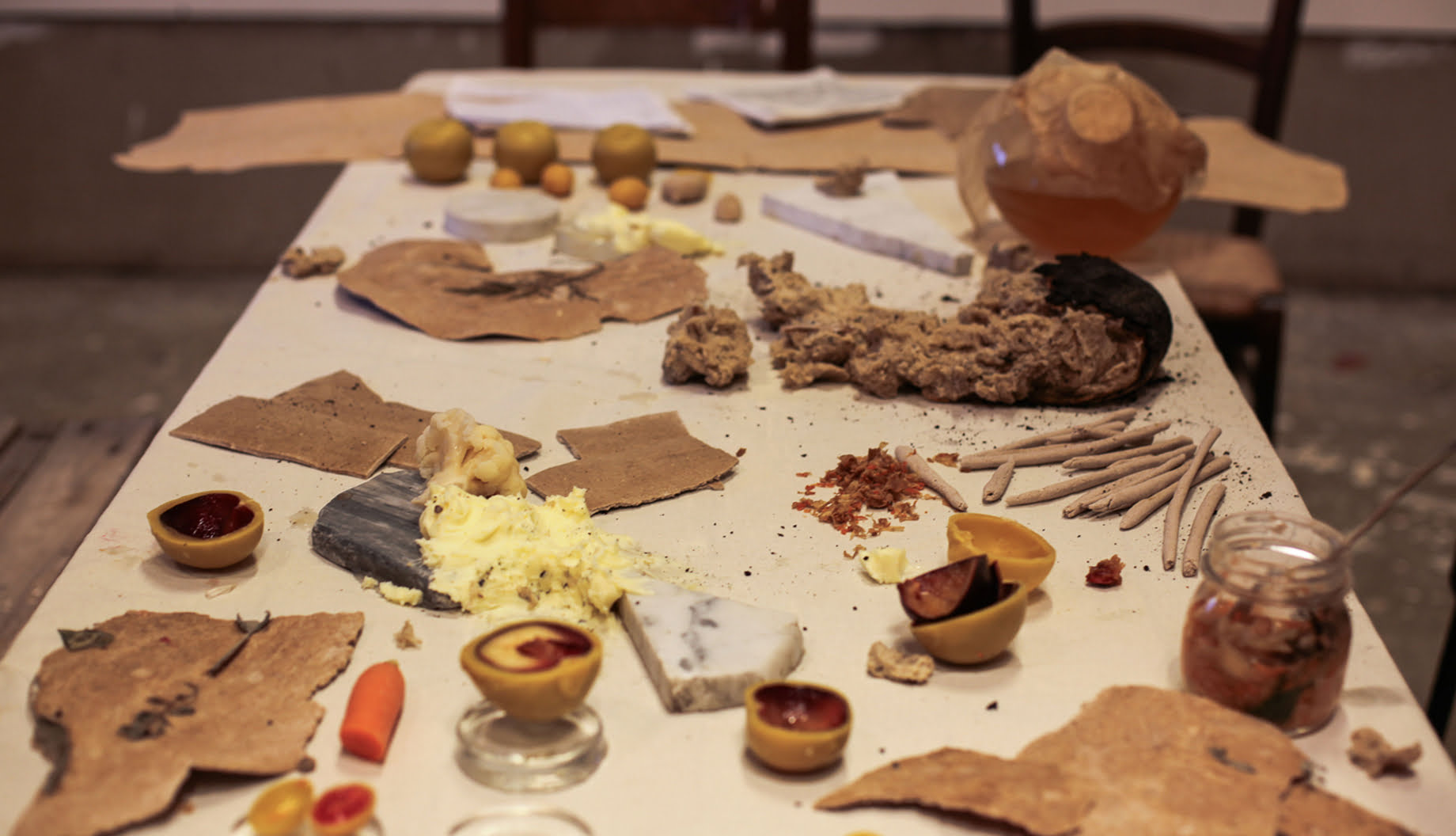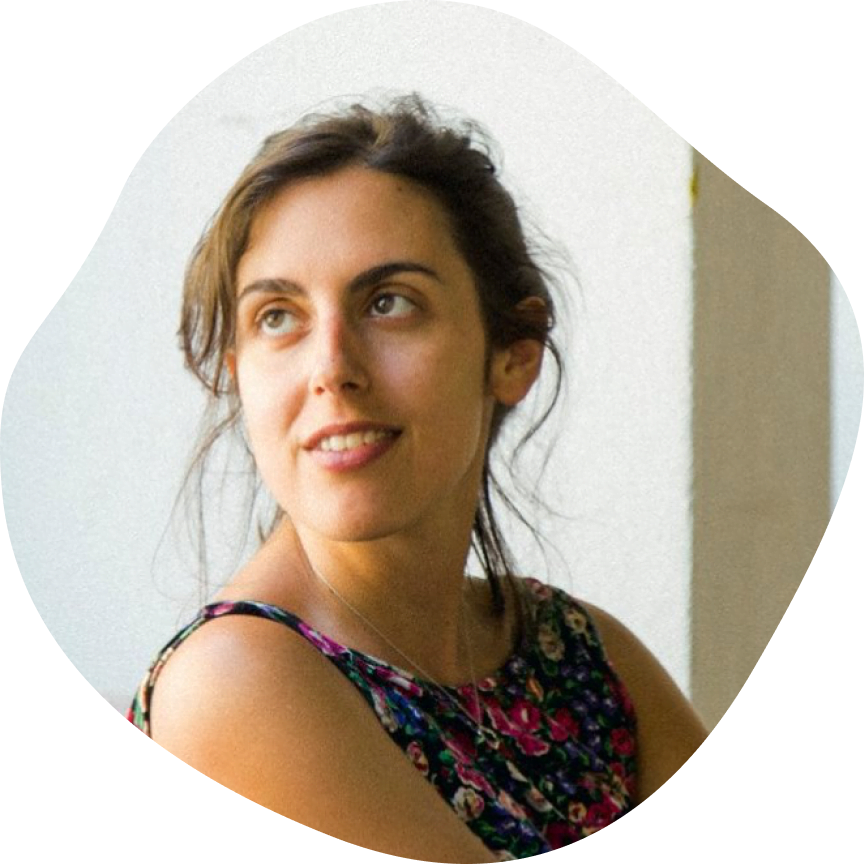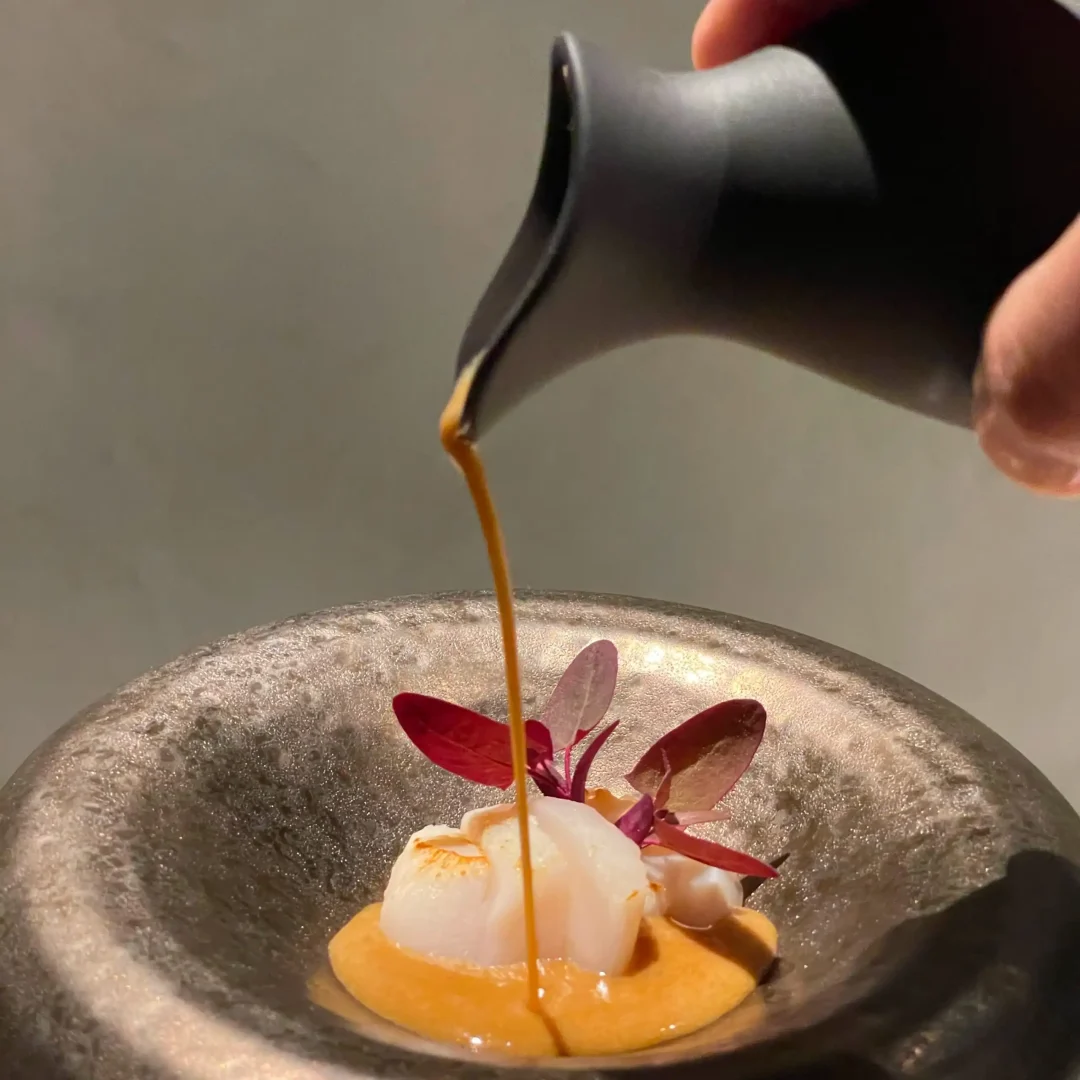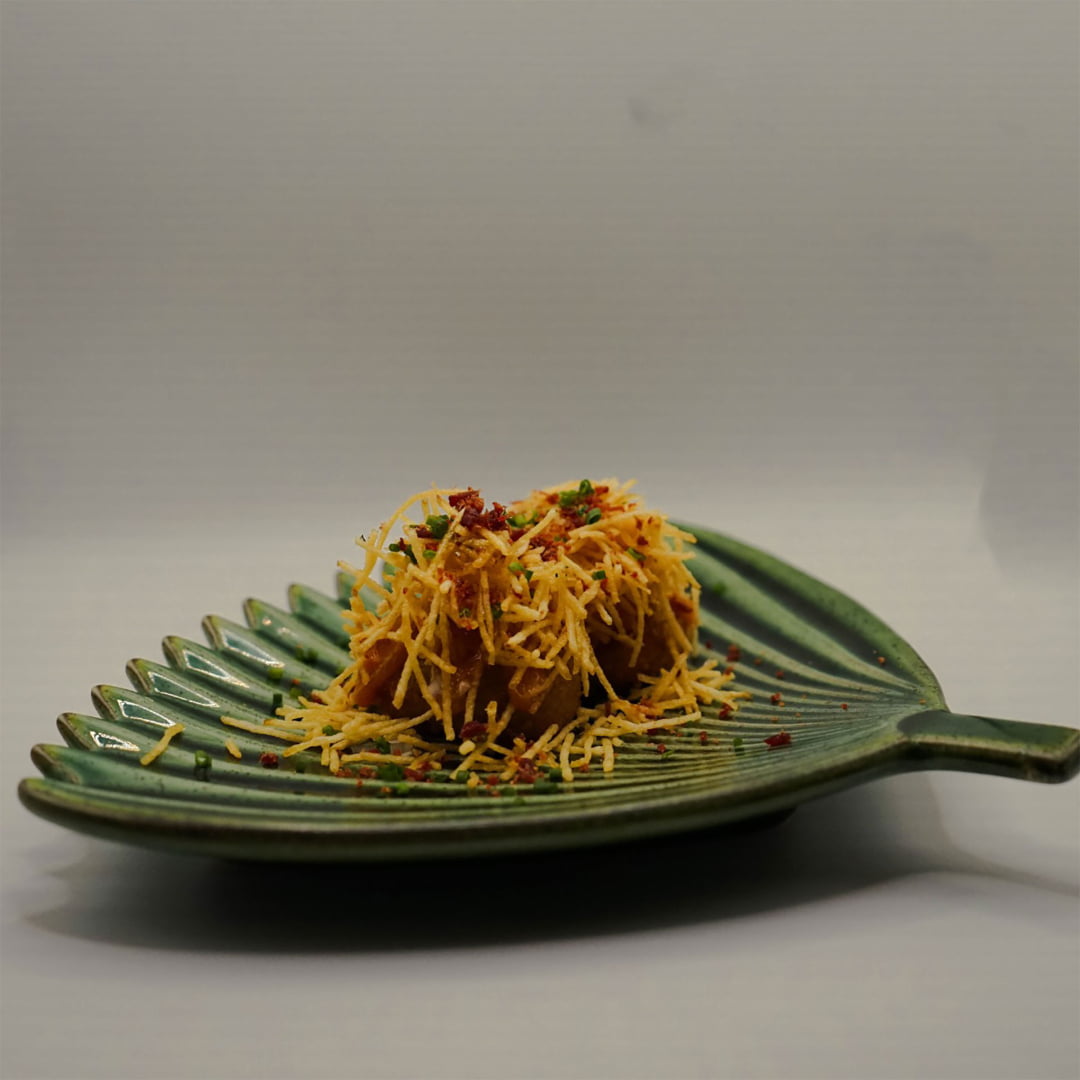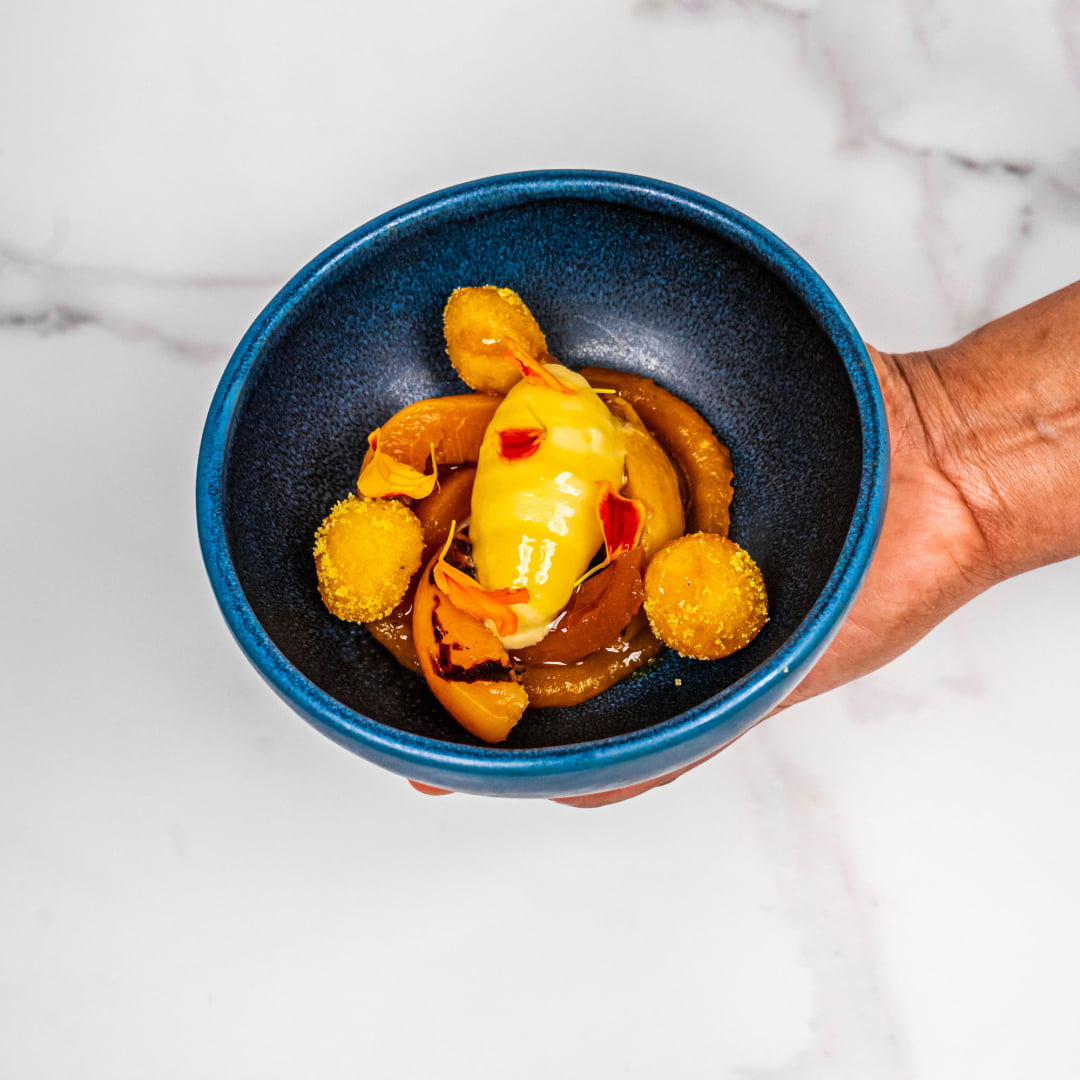From Sourdough to Yogurt: A Global Creative Fermentation Journey
Fermentation surrounds us at all times. It would be even more correct to say that our whole existence is inseparable from fermentation, from the beginnings of life on earth. Fermentation is a process of transformation at the microscopic level, which unfolds, in subtle but powerful fervor, in a wide range of contexts: in what we drink and eat, but also underground, within our digestive system and on the surface of our skin. A dance of microorganisms in an infinite loop, continuous since the dawn of time. A process that, when observed closely, demonstrates the infinite possibilities for life in symbiosis.
Thus, we can say that fermentation travels with us wherever we go. But can we carry it in our pocket?
At the beginning of the Covid-19 pandemic, in March 2020, I joined a movement started by artist Lexie Smith, which quickly turned into a group of mother dough militants. Following Lexie’s instructions, I dried sourdough in the sun, which I then divided into small envelopes and sent to friends and strangers all over Europe. Overnight, the requests multiplied, and suddenly I had hundreds of addresses to send these little packets of sleeping microbial life (Lexie wrote brilliantly about this phenomenon in her text The Bread Rise). Weeks later, photographs of reanimated sourdough, bubbling in jars, arrived in my inbox.
That same year, months later, I participated in a reading session with the anthropologist and writer Mercedes Villalba, who read and shared her publication Boiling Manifesto while we were preparing yogurt together. In this text, Mercedes urges us to ferment in a physical and metaphorical way, and invites us to cultivate the future, to imagine other modes of production and relationship, to disarticulate and dismantle capitalist logic. We talked about the differences between industrial and homemade yogurts – the collaborative way in which the bacterial cultures of artisanal yogurts are perpetuated ad infinitum, due to the microbiological diversity so typical of natural fermentation (a greater diversity of types of bacteria means greater protection against other less desirable organisms, a greater possibility of continuing life through a symbiotic system). Mercedes told us about these artisanal cultures – the “flower” of yogurt – passed down from generation to generation, among friends and strangers, and often transported in dry form. A little yogurt is spread on a cloth, which is allowed to dry, and is ready to be carried, folded, inside someone’s pocket. Arriving at its destination, the cloth is soaked in warm milk, the dried yoghurt is integrated into the milk and the dormant culture returns to its activity, continuing its fermentation process.
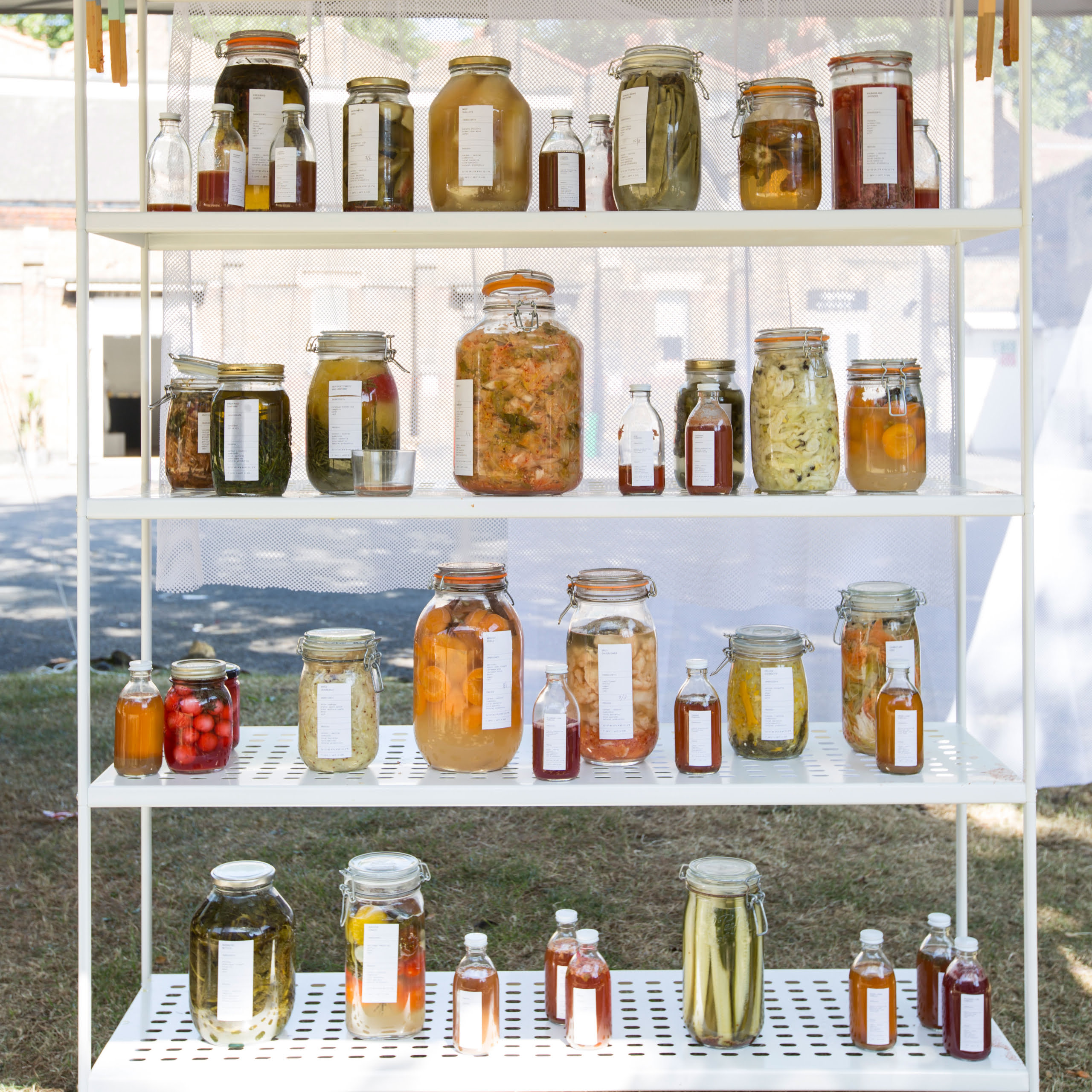
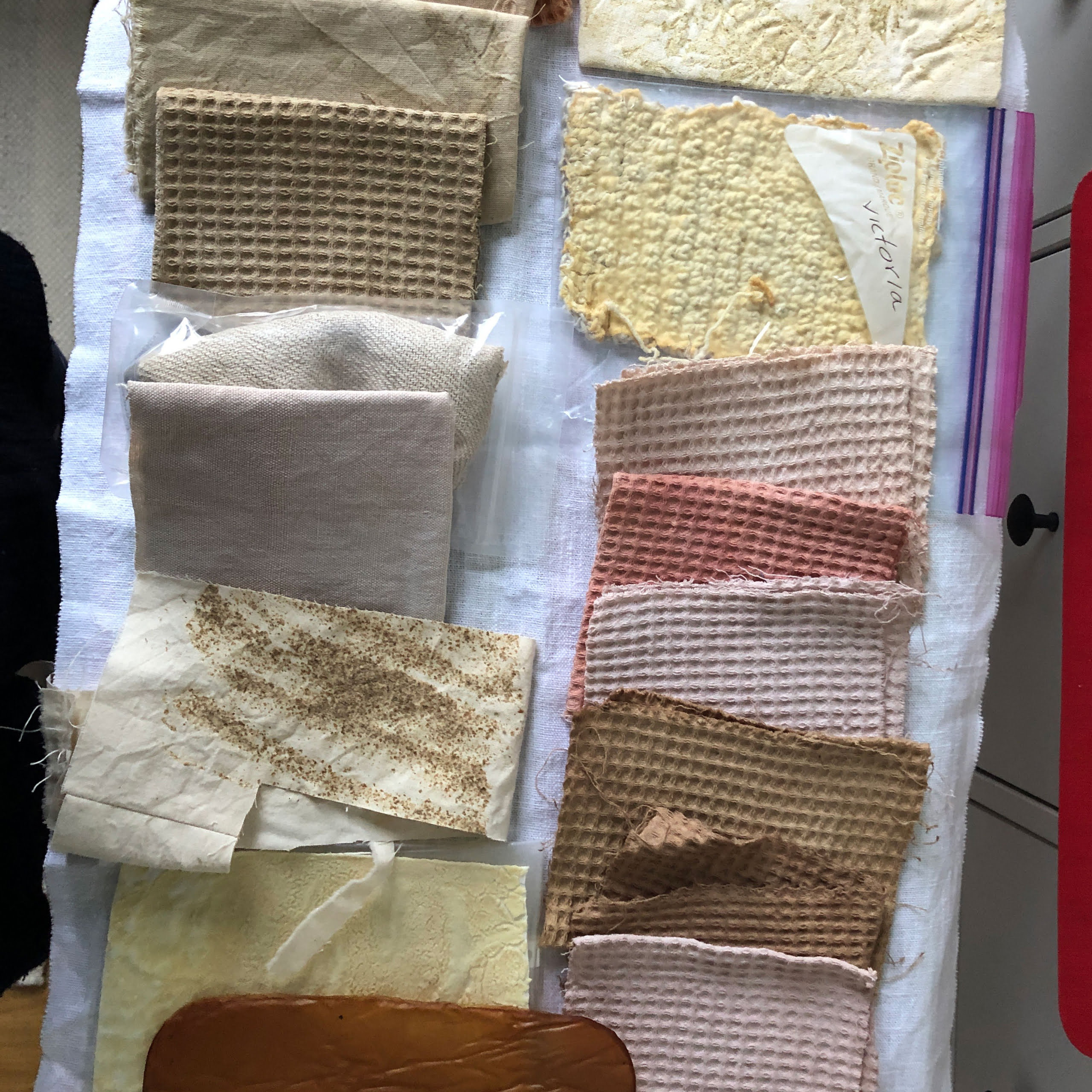
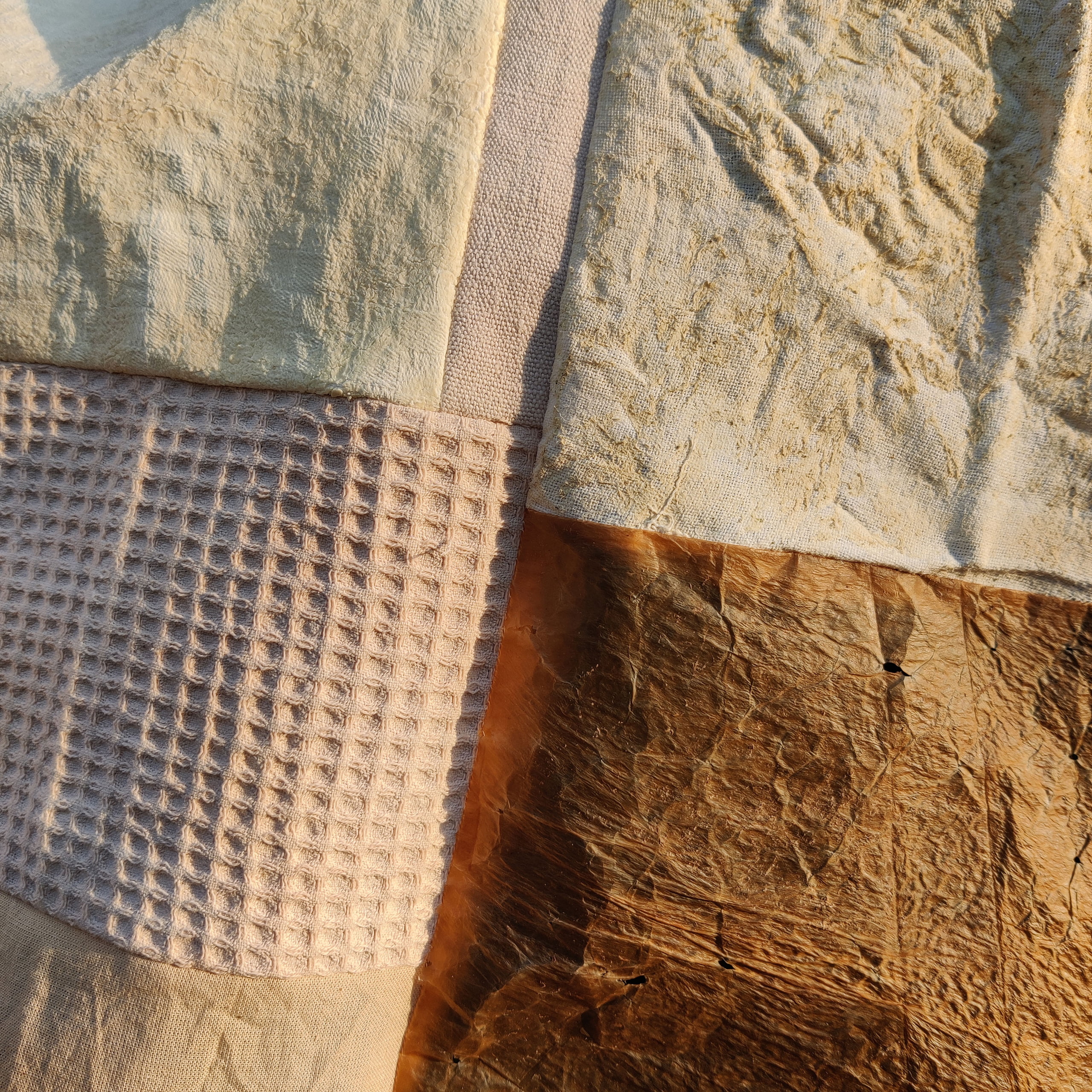
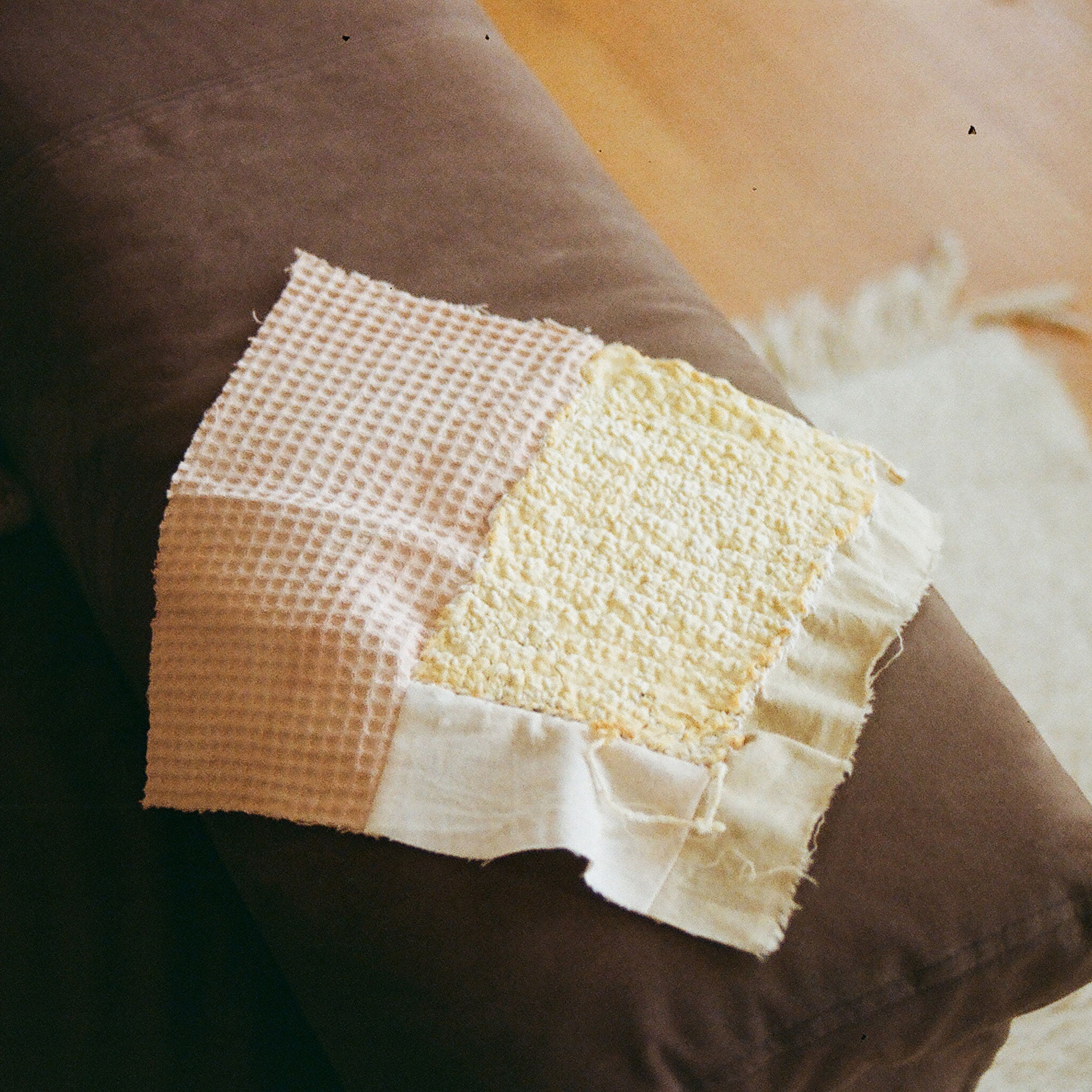
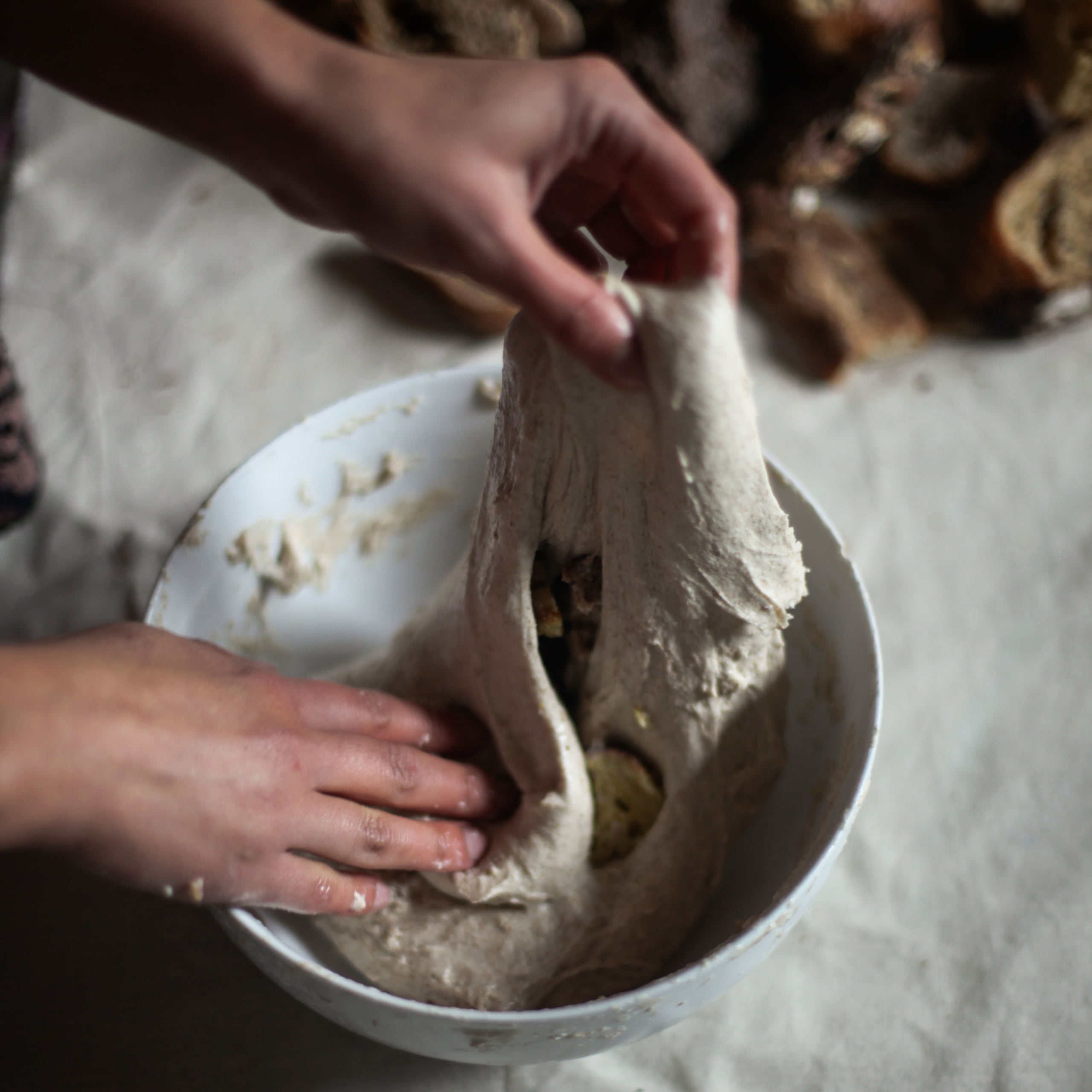
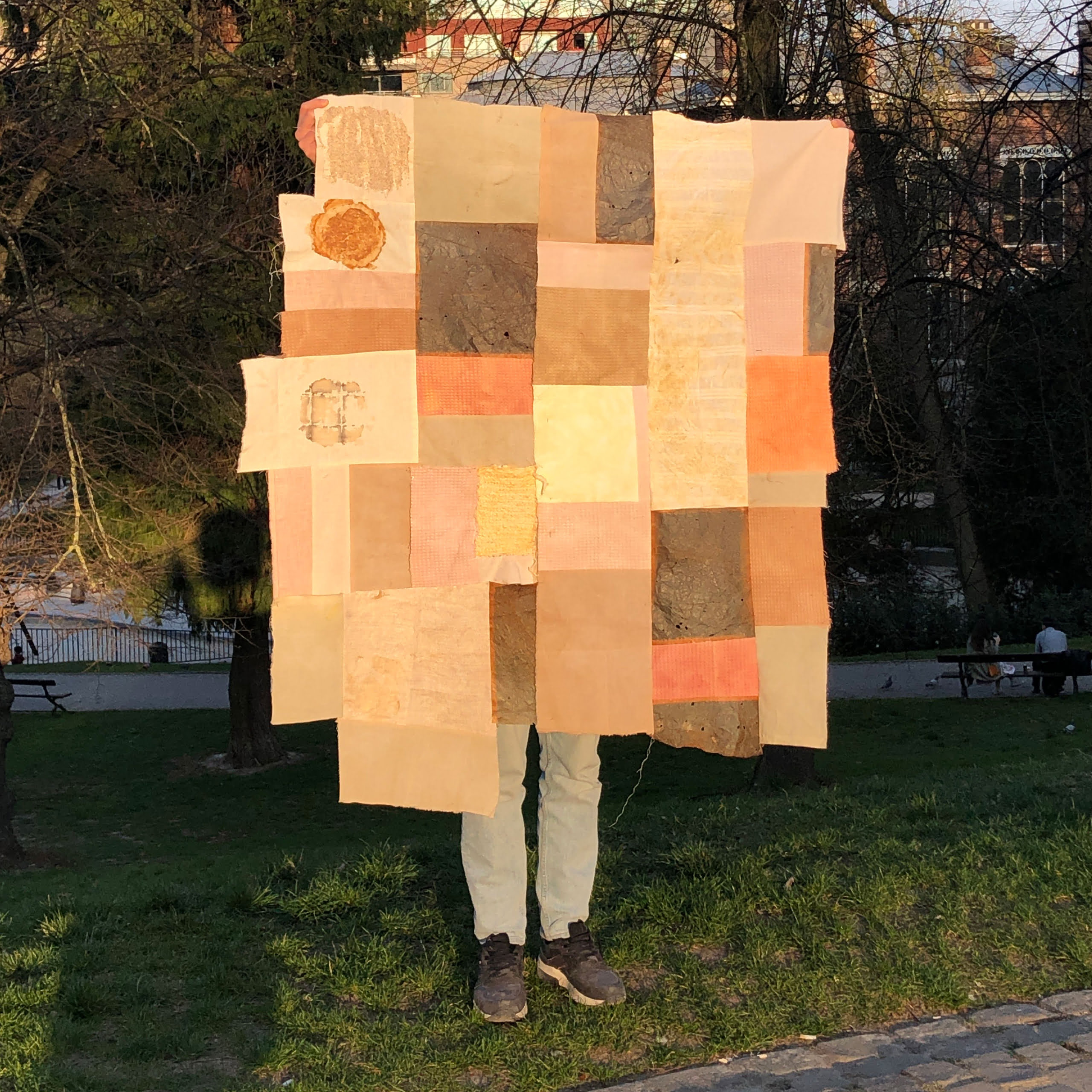
The dehydrated sourdough, sent by so many hands around the world, and the yogurt carried in cloths met in my mind. I revisited The Art of Fermentation, by Sandor Katz, to read the story of a Finnish emigrant, who travels to the United States, taking with him his most precious asset: viili (a type of traditional yogurt from Finland) dried, spread on a cloth, folded and hidden among clothes.
It is inevitable to conclude that fermentation unfolds “culture” in several meanings: bacterial, social, artistic. To cross borders with one of these fermented cloths is to travel with the whole world in your pocket. It is to take with us the possibility of comfort, sustenance and care, infinitely multiplyable. A gesture of resilience and hope in a symbiotic, collaborative, interconnected system – kept in a cloth that would pass for “dirty” to any inattentive eye.


